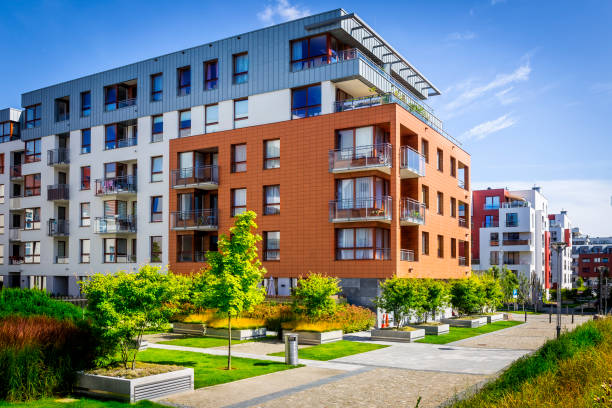In recent years, the Build-to-Rent (BTR) concept has gained considerable traction in the real estate industry. As urbanisation continues to rise and demand for quality housing increases, BTR homes and properties have emerged as an attractive investment option for both developers and tenants alike. A critical aspect of BTR projects is using a modular BTR contract. It ensures the smooth execution and management of BTR communities. This article will explore what a modular BTR contract entails, its benefits, and why investing in BTR is a smart choice for savvy real estate enthusiasts.
What is a Modular BTR Contract?
A Modular BTR Contract is a carefully structured agreement between developers, property managers, and investors that govern Build-to-Rent communities’ development, operation, and maintenance. In a traditional BTR model, individual units are constructed, owned, and managed separately. However, the modular approach streamlines the process by integrating design, construction, and operation. This leads to more efficient and cost-effective outcomes.
Under a modular BTR contract, developers collaborate with property managers and BTR consultants to create a well-defined plan for the community. This includes establishing roles, responsibilities, performance metrics, rental agreements, and maintenance procedures. By fostering collaboration and ensuring transparency, a modular BTR contract helps mitigate risks and aligns the interests of all parties involved.
Advantages of a Modular BTR Contract
- Streamlined Development Process: A modular BTR contract enables a more efficient development process since the various aspects of the project are planned and executed cohesively. By incorporating feedback from property managers and tenants during the design phase, developers can create living spaces that better meet the target market’s demands.
- Cost-Effectiveness: With a modular BTR contract, developers can optimise resources and reduce wastage during construction. The assembly-line production of modules in controlled factory environments allows for cost predictability and faster project delivery. Additionally, economies of scale can be achieved when constructing multiple units, further reducing costs.
- Higher Quality Construction: Modular construction techniques adhere to stringent quality control measures. This ensures that each module meets the required standards. This results in higher-quality, durable BTR apartments requiring minimal maintenance, thereby reducing long-term operational costs.
- Flexibility and Scalability: The modular BTR contract allows developers to scale the project as needed. Whether it’s adding or reducing units, the flexibility of modular construction facilitates adjustments based on market demand, ensuring optimal utilisation of resources.
- Enhanced Sustainability: Modular construction often incorporates eco-friendly materials and practices, contributing to sustainable development. BTR communities built using modular techniques tend to have a smaller carbon footprint, appealing to environmentally conscious tenants and investors.
- Reduced Vacancy Rates: With a comprehensive and well-executed BTR contract, the property management team can focus on tenant satisfaction and retention. This leads to reduced tenant turnover and lower vacancy rates, ensuring a steady flow of rental income.
What is a Build-to-Rent Community?
A Build-to-Rent community is a residential development designed explicitly for the rental market. Unlike traditional multi-family housing, BTR communities are purpose-built with modern amenities, communal spaces, and on-site property management services. These communities offer an attractive lifestyle for tenants seeking a sense of community and convenience.
Build-to-Rent communities typically feature a mix of unit sizes and configurations to accommodate diverse demographics, ranging from young professionals to families and empty-nesters. By incorporating thoughtful design and shared spaces, such as gyms, rooftop terraces, and co-working areas, these communities foster social interaction and promote a sense of belonging among residents.
READ ALSO: Transforming Birmingham Living: Smith’s Garden’s Modular BTR Revolution by Elements Europe
Why Invest in Build-to-Rent?
- Steady Income Stream: BTR properties provide a consistent and reliable income stream, making them an appealing option for investors seeking stable returns. The demand for rental housing remains strong, particularly in urban centres and areas with limited affordable housing options.
- Lower Tenant Turnover: Due to the enhanced amenities and well-managed communities, BTR properties often experience lower tenant turnover rates than traditional rental properties. This stability reduces the costs associated with finding new tenants and potential vacancies.
- Market Resilience: The real estate market may experience fluctuations, but the rental market tends to remain more resilient during economic downturns. People will always need housing, and BTR properties offer renters an appealing and viable option.
- Potential for Capital Appreciation: BTR properties can also experience capital appreciation over time, depending on the location and market conditions. Investors who hold onto their BTR assets for the long term may see their properties increase in value.
A modular BTR contract provides a structured and collaborative approach to developing and managing Build-to-Rent communities. Some benefits of this contract model include streamlined development, cost-effectiveness, and scalability. These make it an attractive choice for real estate developers and investors. As the demand for rental housing continues to grow, investing in BTR properties offers the potential for a steady income and long-term value appreciation. Embracing the BTR concept and leveraging modular BTR contracts can be rewarding for those looking to capitalise on the thriving rental market. The projects also contribute to sustainable and vibrant communities.

Leave a Reply